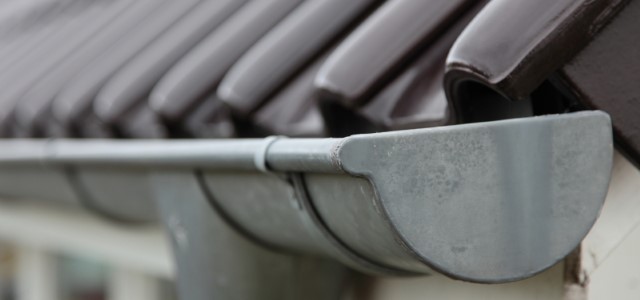Summary
Recognising the value of rainwater, greywater and recycled wastewater as a resource rather than a waste product, GWP Mediterranean’s Non-Conventional Water Resources (NCWR) Programme has proven to be a cost effective method of increasing local water availability and climate resilience in water scarce Mediterranean islands.
The programme focuses on alternative small-scale rainwater harvesting and greywater recycling applications, combined with education and awareness raising. It has directly benefitted water scarce communities and enhanced sustainable development in the region by demonstrating alternative solutions to water scarcity.
Background
The majority of the Mediterranean islands encounter water scarcity challenges due to their small catchment areas and the impacts of emerging climate vulnerability and change. Malta and Cyprus have been acknowledged as the water poorest countries in Europe[1], while a large number of Greek and Italian islands depend on costly desalination and even water transfers by tankers to meet their needs. The restrictions in water availability pose risks to local economic activities, such as tourism and small scale agriculture, and threaten the wellbeing of fragile ecosystems in the region.
To address this challenge, in 2008 GWP Mediterranean initiated the NCWR programme in water scarce islands, with the aim to advance the use of alternative water supply solutions for secondary uses, such as rainwater harvesting and wastewater reuse.
The programme was first launched in Greece collaboration with the “Mission Water” CSR Programme of the Coca-Cola System and islands’ local authorities. It involves a series of local pilot applications, accompanied by educational, training and awareness raising activities. The approach delivers tangible results for local water security, coupled with increased awareness and building of local capacity on the benefits and use of NCWR. At the same time, it promotes the incorporation of demonstrated solutions into local and national development planning to ensure large scale replication.
The programme was initially launched in the Cyclades islands, Greece, in 2008 with a special focus on rainwater harvesting. In 2011 the programme was expanded to Malta with an extended focus on greywater and treated wastewater reuse solutions. It has since spread to Cyprus (2013) and Italy (2016), and was further expanded in Greece where it is now operational in 29 islands across the Cyclades and Dodecanese island groups.
GWP Contribution
As the main administrative and technical implementing agency, GWP Mediterranean developed both the concept and the content of the NCWR programme. It also established a multi-stakeholder partnership that successfully mobilised financial resources and gained buy-in from national and local authorities.
GWP Mediterranean plays a lead role in the implementation of the three main pillars of action upon which the NCWR programme is built, namely:
- Infrastructure works: selection and installation of demonstration applications (technical works are carried out by contractors)
- Education: development of educational materials for schools to encourage a new generation of sensitised and responsible consumers
- Capacity building and awareness raising: provision of training for local technicians on the installation and maintenance of modern NCWR technologies and promotion of the approach among responsible authorities and the general public
GWP Mediterranean has also been instrumental in securing local ownership of the applications, as well as promoting and facilitating demonstrated NCWR solutions in local and national planning processes, to support the replication of alternative technologies on a larger scale. In Malta in particular, GWP Mediterranean supported the Ministry of Energy & Health in developing the National Water Management Plan (NWMP) for the Maltese Islands. This included the development of a cost benefit assessment tool for water sustainability measures.
Results
The results achieved by the NCWR programme are notable at different levels and scales. The most tangible impact is in the local communities that have benefitted directly from demonstration applications. In total 110,000 inhabitants in 32 water scarce insular communities in Greece, Malta and Cyprus have enhanced water security through the more than 86 site-specific NCWR applications. These interventions have been accompanied by technical training seminars, attended by 270 technicians, and educational activities targeted at more than 20,500 students and 3,300 teachers.
Whereas the direct beneficiaries are the most noticeable results, the alternative solutions used require the incorporation of such measures into regional, national and sub-national policy and planning processes to get a wider spread. To achieve this, the NCWR programme has worked closely with local and national governments, as well as regional bodies, to build awareness on the benefits of the demonstrated water supply solutions.
The success of this approach is best illustrated in Malta where the demonstration projects on the island of Gozo have provided direct input to the Ministry for Gozo’s Sustainable Development Action Plan. In addition, the new National Water Management Plan for Malta not only includes technical input from GWP Mediterranean, but also integrates NCWR solutions to augment water supply in the country.
Whereas the implementation, and hence impact, of such plans will take a number of years to materialise, the positioning of the NCWR approach within these frameworks constitutes a crucial step in establishing increased water security and more sustainable development at a substantially larger scale than the communities that benefit from demonstration applications directly.
With regard to financing, in total, over 5.25 million USD has been mobilised to implement the programme over the period 2008-2018 – primarily raised through grants from the Coca-Cola Foundation, with co-funding from the "Mission Water" Environmental Program by Coca-Cola Tria Epsilon and Coca-Cola Hellas. This funding has been used to leverage public finances, including USD 440,000 from the Ministry for Gozo in the Maltese islands for programme implementation on Gozo, as well as contributions from municipalities in the project islands in Greece and Cyprus.
[1] EU Commission, DG Research, Water Scarcity and Droughts Second Interim report, June 2007

